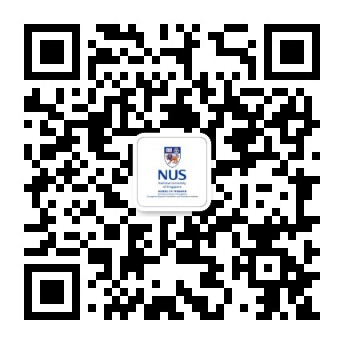On July 16, 2024, the 2024 Medical Robotics Technology Innovation and Application Forum, hosted by the NUS Guangzhou Research Translation and Innovation Institute came to a successful close. Under the guidance of the China-Singapore Guangzhou Knowledge City Collaboration Affairs Office, the forum brought together experts, scholars and industry leaders from the domestic and global healthcare field. They discussed the latest developments in medical robotics, shared research results, facilitated academic exchanges and collaboration, and promoted the translation and application of medical robotics technologies.
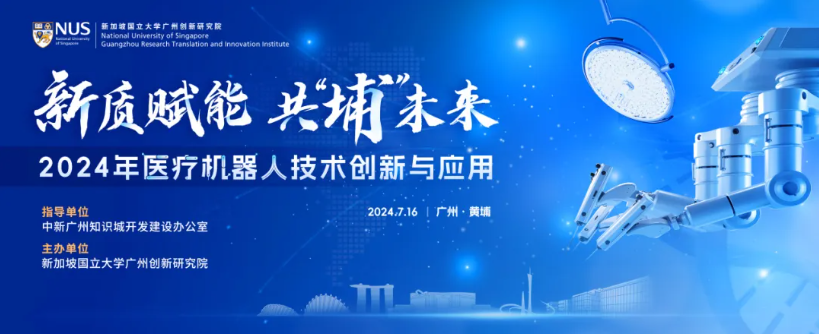
The forum included keynote speeches by 11 experts and scholars, two roundtable discussions, and an open networking session, presided over by Associate Professor Yu Haoyong, Associate Director (Research) of the NUS Guangzhou Research Translation and Innovation Institute, who also delivered an opening address.
KEYNOTE SPEECH
The forum's keynote speeches were kicked off by Professor Dai Jiansheng, a Fellow of the Royal Academy of Engineering and the European Academy of Sciences, and currently the Dean of the Robot Research Institute at the Southern University of Science and Technology. Professor Dai spoke on the theme of "Theoretical Development and Industrial-University-Research-Application Integration Process of Embodied Intelligent Metamorphic Robots." He introduced the history and theoretical development of embodied intelligent metamorphic robots, with a particular focus on their applications in industrial-university-research collaborations, and showcased practical cases from various senarios.
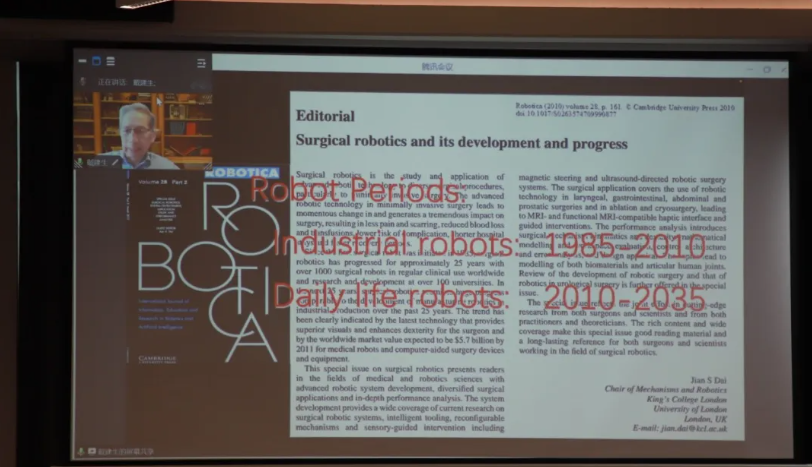
Following Professor Dai, Professor Ouyang Chenxi, Chief Physician of the Department of Vascular Surgery at the Fuwai Hospital of the Chinese Academy of Medical Sciences and a Foreign Academician of the Russian Academy of Natural Sciences, delivered a speech on the "Analysis of the Development Status of China's Cardiovascular Devices." Professor Ouyang noted that with technological innovations, high-end medical devices such as cardiac pacemakers and coronary artery stents are continually emerging, providing strong support for the diagnosis and treatment of cardiovascular diseases. Faced with fierce competition from multinational companies, he anticipates that domestic enterprises will actively invest in research and development, build brands, and enhance the competitiveness of Chinese companies in the global cardiovascular device industry.
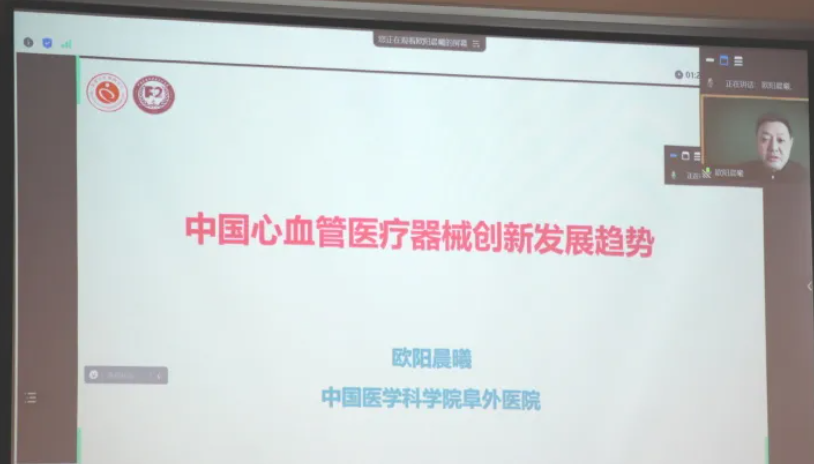
Subsequently, nine experts and scholars from institutions such as the National University of Singapore, the Chinese Academy of Sciences Shenzhen Advanced Technology Research Institute, Shenzhen Technology University, Sun Yat-sen University, the Chinese University of Hong Kong, Wuhan University, the Southern University of Science and Technology, and Guangdong University of Technology delivered speeches and showcased their research achievements on various sub-types of medical robots, including exoskeleton robots, rehabilitation robots, intelligent minimally invasive robots, and intelligent surgical auxiliary robots.
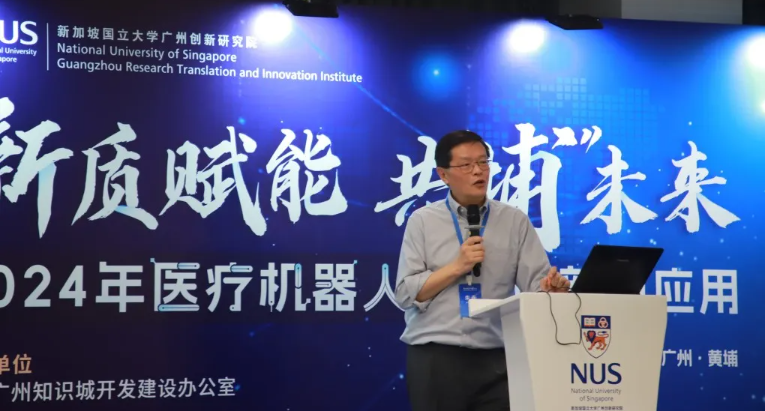

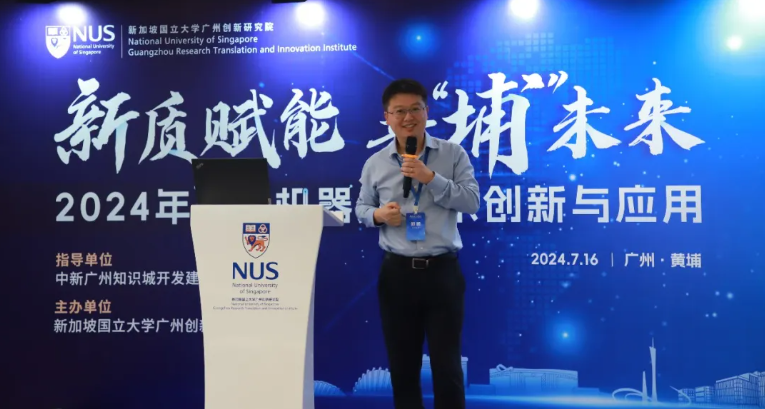
The 2024 Medical Robotics Technology Innovation and Application Forum was not only a gathering for intellectual debates, insightful dialogues, and technology sharing but also painted a picture of the deep integration of production, education, and research, injecting new momentum into the development of medical robotics technology.
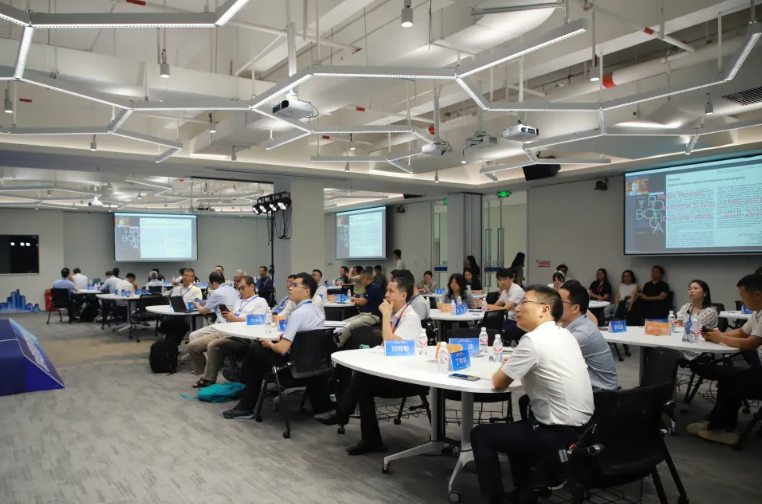
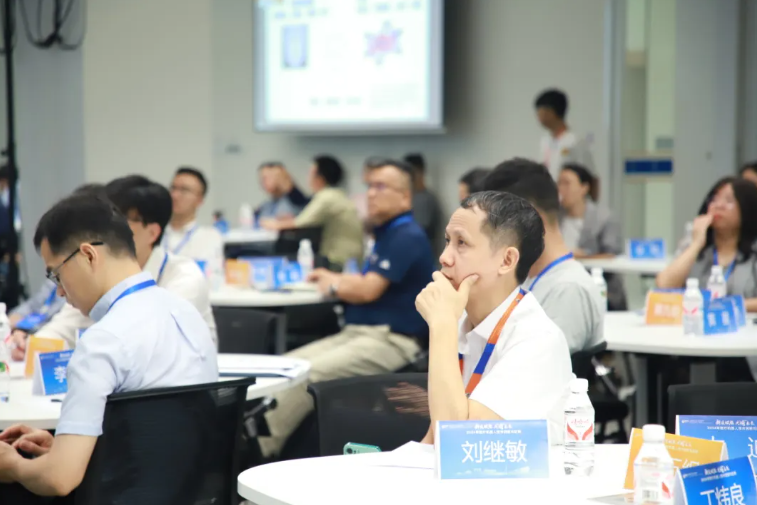
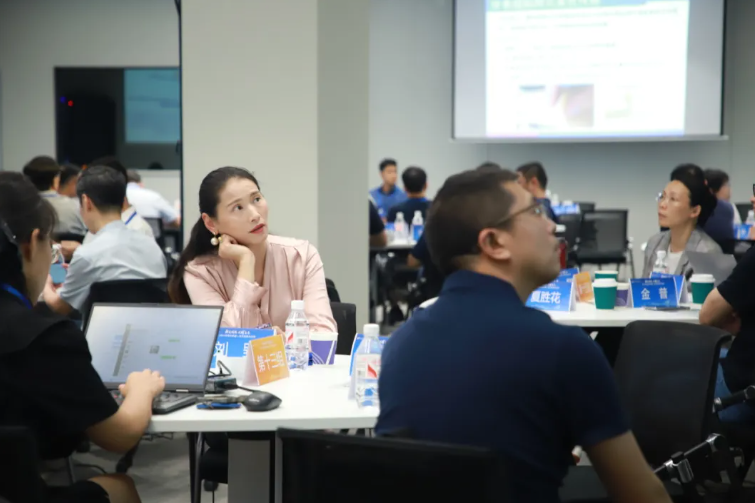
In the future, the NUS Guangzhou Research Translation and Innovation Institute will continue to play the role of a bridge, building more cross-disciplinary and cross-sectoral technology exchange and innovation application platforms in the Huangpu District of Guangzhou. We look forward to working with global experts, entrepreneurs, and policymakers to stimulate innovative thinking, explore the limitless possibilities of technology, and jointly promote the development of the science and technology industry and regional prosperity in the Guangdong-Hong Kong-Macao Greater Bay Area.


